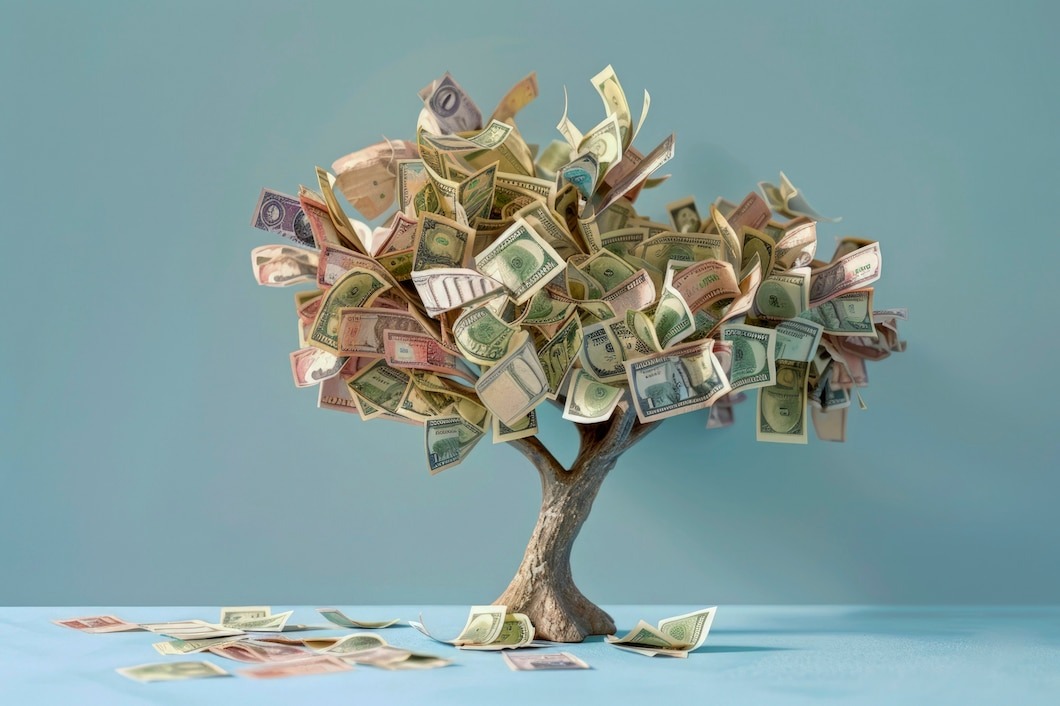Hawaii is not just a dreamy vacation destination; it’s also an incredible market for real estate investors. With its picturesque landscapes, high demand for vacation properties, and unique real estate opportunities, Hawaii offers a promising environment for wholesalers. In this blog post, we will explore step-by-step how to wholesale in Hawaii, taking into account local market dynamics, laws, and strategies. Plus, we’ll show you how you can leverage EarnEcash—a service that can help you build passive income while scaling your wholesaling business. Whether you’re a first-time investor or seasoned wholesaler, this guide will provide the insights you need to succeed in Hawaii’s real estate market.
What is Wholesaling Real Estate?
Wholesaling real estate is a short-term investment strategy that involves finding distressed properties at below-market prices and assigning those contracts to other buyers, typically fix-and-flip investors, for a fee. It’s a win-win: the seller gets rid of an unwanted property, the buyer gets a good deal, and the wholesaler profits without taking ownership of the property.
In Hawaii, wholesaling works in much the same way as it does in mainland markets. However, there are some unique factors that investors need to understand before jumping in. With the right strategies, wholesalers can tap into Hawaii’s real estate market without a significant upfront investment.
How to Wholesale Hawaii: Step-by-Step Process
Here’s a step-by-step guide to help you wholesale real estate in Hawaii.
Step 1: Learn Hawaii’s Real Estate Laws and Contracts
Before diving into wholesaling in Hawaii, it’s crucial to understand the legal framework. Hawaii real estate laws require that any person acting as a real estate broker or salesperson hold a valid license. However, wholesalers do not need a license as long as they are not actively selling the property or negotiating directly with buyers.
In wholesaling, you are essentially selling your “equitable interest” in a property (i.e., the right to purchase it). This means you’re not directly selling the property itself, but instead, you’re assigning your contract to another buyer. However, it’s important to understand Hawaii’s state laws on contracts to ensure you don’t inadvertently breach any regulations.

Step 2: Understand Hawaii’s Unique Real Estate Market
Hawaii’s real estate market is unique. The state has a high demand for vacation homes and rental properties, particularly in places like Oahu, Maui, and the Big Island. Many properties in Hawaii are located in resort areas and coastal regions, attracting both domestic and international buyers.
As a wholesaler, it’s crucial to understand the local market trends, property types, and neighborhood dynamics. For example, properties in high-demand vacation destinations may fetch higher prices, but the competition is also fierce. On the other hand, areas with more distressed properties may offer opportunities to find deals at lower prices.
Step 3: Build a Cash Buyers List
One of the most important aspects of wholesaling is building a list of reliable cash buyers. These are investors who are ready to purchase properties quickly, without financing delays. In Hawaii, this could include fix-and-flip investors, landlords, and other real estate professionals who focus on buying properties for investment purposes.
Start networking with local investors, attending real estate events, and reaching out to real estate groups in Hawaii. A strong cash buyers list will ensure that you can assign contracts quickly, which is crucial to your success as a wholesaler.
Tip: If you want to further expand your reach and scale your wholesaling business, you can leverage EarnEcash, a service that provides additional ways to earn passive income by utilizing technology to find buyers and sellers more efficiently. We can help you maximize your business potential by automating and streamlining the process, freeing up more of your time for deal-making.
Step 4: Find Distressed Properties and Motivated Sellers
Finding distressed properties and motivated sellers is a key part of wholesaling. Distressed properties are often in need of repairs or are in foreclosure, making them attractive to fix-and-flip investors who are looking for a deal.
In Hawaii, you can find distressed properties by:
Searching foreclosure listings: Look for homes in foreclosure auctions or bank-owned properties.
Networking with real estate agents: Some agents may have access to properties that aren’t listed on the market yet.
Targeting absentee owners: Property owners who live off-island might be more motivated to sell.
When contacting potential sellers, be direct but compassionate. Many motivated sellers are dealing with life changes, such as divorce, financial hardship, or the passing of a loved one. Approach these situations with sensitivity and professionalism.
Step 5: Negotiate and Secure a Contract
Once you’ve found a distressed property and have a motivated seller, the next step is to negotiate the terms of the sale and get the property under contract. The key to a successful wholesale deal is offering a price that is below market value but still fair enough to attract the seller.
Use the Maximum Allowable Offer (MAO) formula to determine your offer price:
MAO = After Repair Value (ARV) – Repair Costs – Wholesale Fee – Desired Profit
This formula ensures you are offering a price that provides enough room for both you and the buyer to profit once the property is renovated and resold.
Step 6: Assign the Contract to a Cash Buyer
Once the contract is secured, the next step is to assign it to a cash buyer. This is where your buyers list comes into play. Reach out to your cash buyers, present them with the property details, and negotiate an assignment fee.
The assignment fee is typically a flat amount, ranging from $5,000 to $25,000 depending on the deal. Once the buyer agrees to purchase the property, you’ll finalize the paperwork and collect your fee at closing.
Pro Tip: To make your process even more efficient, consider using EarnEcash’s automation tools to connect with potential buyers more quickly. This service helps you build your buyers list faster and streamlines the process of assigning contracts—so you can close deals with greater speed and efficiency.
Step 7: Close the Deal and Get Paid
The final step is to close the deal. The title company or attorney handling the closing will ensure all paperwork is completed properly. After the sale is finalized, you’ll receive your assignment fee. This fee is your profit for the wholesale transaction.
Keep in mind that Hawaii’s real estate market is unique, with a mix of local and international buyers. This can sometimes slow down the closing process, so it’s important to stay patient and work closely with your cash buyers and legal professionals to ensure a smooth transaction.
Step 8: Explore Advanced Strategies: Double Close and Wholetailing
While the standard wholesale strategy involves assigning a contract to a buyer, you may also consider more advanced techniques like double closing or wholetailing.
Double Closing: This involves purchasing the property yourself before reselling it to the buyer. While this requires more capital upfront, it allows you to control the property and sell it at a higher price.
Wholetailing: A hybrid strategy where you buy the property, do minimal repairs, and then list it for resale. This can increase the property’s market value while still offering a quick exit strategy.
These strategies can be particularly useful in Hawaii’s high-demand areas, where properties can often be sold at a premium with minimal work.
Step 9: Keep Learning and Scaling Your Business
Wholesaling in Hawaii can be highly profitable, but it requires continuous learning and adapting to market changes. Stay up to date with the latest trends in Hawaii’s real estate market, expand your network, and refine your strategies over time.
Building relationships with local real estate agents, attorneys, and other professionals can help you identify more opportunities. The more you practice and learn, the more successful you’ll become in wholesaling in Hawaii.
Boost Your Wholesaling Success with EarnEcash
To really take your wholesaling game to the next level, consider using EarnEcash—a platform that integrates technology and real estate expertise to help you find more buyers, streamline deals, and even generate passive income streams. Whether you’re new to real estate or a seasoned investor, EarnEcash provides innovative tools to help you scale faster and smarter.
By automating key parts of your business, such as connecting with motivated sellers and potential buyers, EarnEcash saves you valuable time and boosts your profitability. With a dedicated service that focuses on providing real estate professionals like you with advanced tools, you can stay ahead of the competition and scale your wholesaling business in Hawaii with ease.
Conclusion: Is Wholesaling in Hawaii Right for You?
Wholesaling real estate in Hawaii offers exciting opportunities for investors who are willing to learn and take strategic action. By following these steps—learning the local laws, understanding the market, building a strong buyers list, and finding motivated sellers—you can successfully wholesale properties in this unique and high-demand market.
As with any investment strategy, wholesaling requires time, patience, and persistence. But if done right, it can be a lucrative venture. Keep refining your approach, stay diligent, and you’ll be well on your way to success in Hawaii’s real estate market. And don’t forget to leverage EarnEcash to streamline and scale your business, unlocking new levels of passive income and profitability.
Ready to start wholesaling? It’s time to take action and begin building your real estate business in the Aloha State!







Comments(0)